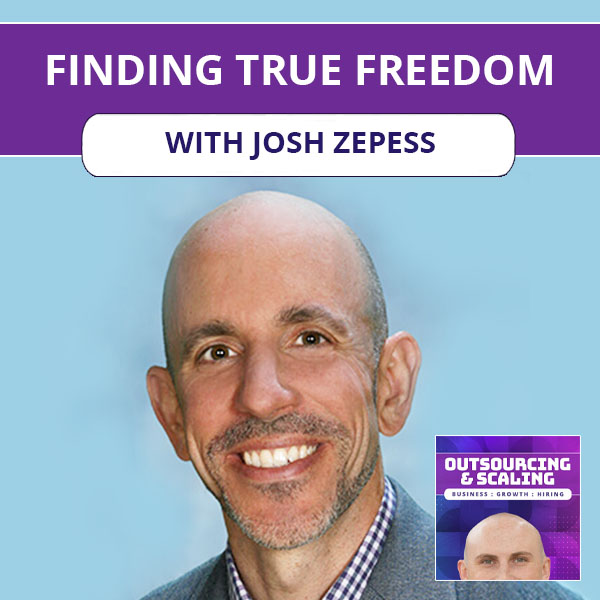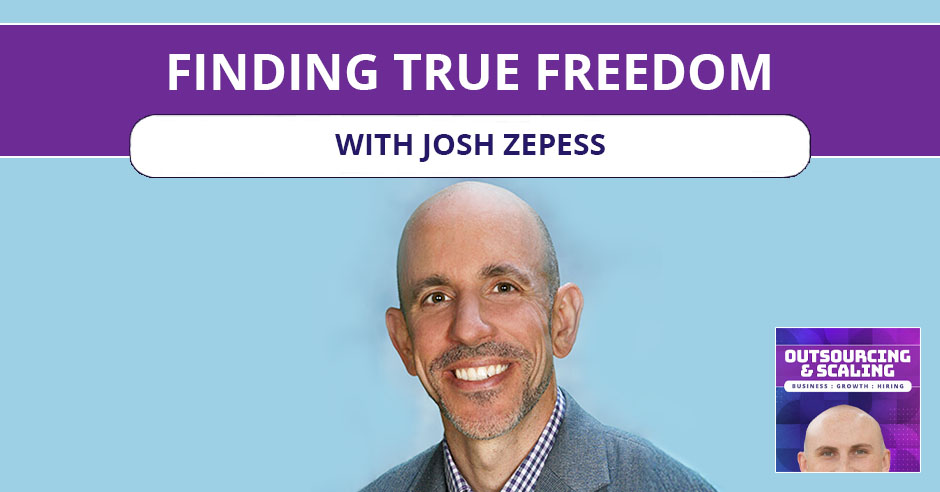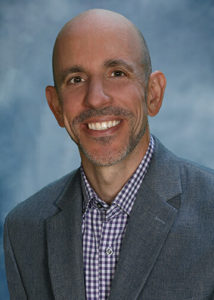


True freedom is a slippery and often vague concept, but it’s something that everyone truly seeks out at their very core. True freedom is being able to do the things you want, the things you’re passionate about, while still maintaining the shreds of stability that keep you grounded in your reality. Josh Zepess is the Founder of Broke Is No Joke, a platform and movement that helps people achieve what they believe to be their true freedom. Nathan Hirsch interviews Josh about his story of escaping Corporate America and establishing his identity with the true freedom he found. Feel like you’re stuck in a space that’s draining your passion? Let Nathan and Josh show you a new way to live your life!
—
Listen to the podcast here:
[smart_track_player url=”https://www.podetize.com/statsapi/www.podetize.com/wp-content/uploads/fileuploads/11-5b145ef137b51b3d1af0633e9305c43d/02/2020/ea0af15a9b05f5df9489eb9457c264b0.mp3″ title=”Finding True Freedom With Josh Zepess” artist=”Nathan Hirsch” image=”https://freeup.net/wp-content/uploads/2019/04/OAS.png” ]
Download the audio file here.
Finding True Freedom With Josh Zepess
My guest is Josh Zepess. Josh, how are you doing?
I’m doing excellent. How are you?
I’m doing great. For those of you that don’t know, Josh is a Corporate America escapee who after a twenty-year successful career as a semi-conductor engineer and manager, decided that his path in life could not be contained within the walls of a cubicle. After years of building independent and franchise businesses, he found his passion helping others become the person worthy of success through escaping the endless, pointless, self-defeating cycle of their personal rat race. Josh founded Broke Is No Joke as a platform and movement for true freedom.
As an author, speaker, poet, and comedian, he shares his talent for exposing the truth that we’re not supposed to know under the belief that the truth will indeed set us free. I’m excited to talk all about it. I know you help other people escape that corporate grind, get into freelancing, become an entrepreneur, which I’m excited to talk about, but first, let’s take a gigantic step back. What were you like growing up as a kid? I know you went to corporate first-ever college, but did you have any sense that you wanted to be an entrepreneur? Were you a straight-A student? Were you a rebel?
Not at all. That’s very interesting. I grew up the way I describe it as a good soldier. I was a soldier. I did everything I was told to do. My parents were contractors. They never were entrepreneurial themselves. I was the first one in my family to even go to college. When I was a kid, it was drilled into me, “Go to college. That’s the answer.” I did what I was told to do. I went to college with multiple degrees. I got that safe and secure job. I followed that path for a very long time. I did have a grandfather that planted a seed in me and he says, “I think by the time you’re 40 years old, you will be an entrepreneur.” He kept saying that to me. At that time, I don’t even know what an entrepreneur was. It was seven or eight years old and sure enough, 37 years old, I escaped Corporate America and got knee-deep into entrepreneurship.

What was it like being an engineer? Were there any entrepreneurship qualities in there or were you following the system and process in front of you?
I was in semiconductor, so I was in the design aspect of it. There was quite a bit of creative freedom, I suppose. I’m still within the corporate structure, so I still had limits. I call my cubicle my great jail cell. I was bound by that. I believe through the design process. I started letting some of my creativity come out, problem-solving and building relationships. I don’t have a Corporate America sob story. I was successful. If you were to look at my career overall, the many years that I was in corporate America, you would say, “That was successful.” It was a corporate success story. I don’t have the complaints in that but at the end of the day, I realized it wasn’t going to work. That’s why I had to get off into entrepreneurship. I had to get off and start my own thing and follow my passions and monetize it. There were some seeds of that that creativity coming out.
Can you talk a little bit about becoming an entrepreneur later in life? You’re not that old, but a lot of entrepreneurs now are trying to do it early on when they can take more risks when they don’t have a family and they don’t have responsibilities. What was that like telling your family, “I’m going to go take a lot of risks now many years into my stable, steady job?”
What’s interesting is I didn’t come to a realization one day like an a-ha moment of like, “I should get the heck out of here.” That’s not how it happened. I had a series of wake-up calls. There were a series of things that happened. One of them, for example, is I found that my 401(k) was never going to retire me after years of max funding it. I’m that person that putting all the money into it. I’m like, “It’s got to work. This is my future.” I find out mathematically that it was impossible. It wasn’t ever going to work. I kept getting hit with these wake-up calls and it came to the point where I realized, if I keep doing what I’m doing, there’s no chance of success. It almost became to a point where I had to leave if there was any chance of being successful to the level I wanted in life.
What I did is I found a way to transition out without giving up my safety and security of the job. I started side businesses. I got into the financial industry. I was in the gym ministry and I was in franchises. I got out little by little. I didn’t show up until my like, “I’m quitting now. Let’s figure it out. Let’s see what happens.” I couldn’t do that. That’s part of how people should be escaping the rat race is there needs to be an exit strategy. Entrepreneurs are familiar with exit strategies. You should always have one when you start a business. What’s interesting is when we’re in Corporate America and in life, we don’t tend to think about those things. If you don’t have that strategy, the chance of you succeeding just leaving the rat cage and going out and saying I’m free is pretty low. I did have an exit strategy. I was fortunate to have someone help me do that.

What would you tell people that are thinking about quitting the corporate lifestyle because being an entrepreneur is hard? A lot of businesses fail. It’s a risk that not everyone should take. How do people decide if that’s right for them or if that stable job is a better fit?
I always ask people to look at both sides of the coin because I do get that question a lot. People say, “Josh, isn’t becoming wealthy hard? Isn’t entrepreneurship hard? Isn’t it becoming successful hard?” “It’s going to be the hardest thing you’ve ever done. There’s no question about it.” Nathan, do you know what else is hard? Being broke, struggling, working for many years for another person’s company, helping them become wealthy and having nothing to show for it. I help them see the other side of the coin. Everything’s hard. It’s okay. Life is a struggle. It’s good if you want to look at it that way. It’s going to be a challenge. The only question is, what are you getting in return? On one side of the coin, you’re probably getting that much, even if it goes well. On the other side of the coin, you have a chance for ultimate success, happiness and becoming that person you’re supposed to become. It’s about looking at both sides of that coin.
It makes total sense. Can you talk about you’re one of being an entrepreneur because I feel a lot of people go into it, they say, “I’m going to build this empire and this business. I’m going to be my own boss and I’m going to work whenever I want.” Your one is usually that wake-up call where it’s not like that at all and you’re working a ton. What was that like for you?
The mindset of it, just getting out.
The mindset where you are focusing your time. What did you learn?
During that transition point, one of the biggest things I had to start changing was my mindset was they call it the contractor mindset and then the entrepreneurial mindset. I had to start seeing things differently because the one thing that corporate America did to me is it made me a very negative person, very skeptical and I wasn’t open to change. That’s going to kill any business. I started putting things together in my off time. People say, “I have no time.” Everyone’s so busy but I made time. I found ways to start plugging into little side businesses and things outside of my corporate career. I started building and started learning. I became a personal development addict. I’ve got 500 to 600 personal development books. I wanted to learn, “What are successful people doing? How do they think? What is their behavior? What are they like? What don’t they do?” They say success leaves clues. I figured I’m going to dive in and see what I can learn. That helped me a lot.
How do you find the balance between learning and implementing? I feel a lot of entrepreneurs, they go down that path of buying tons of courses and listening to every guru but they miss that execution part and then vice versa. Other people are just executing and if they spent the time to learn things, they’d save a lot of time and a lot of effort. How do you find that balance?
For me personally, every time I read a book, in fact, I did even create a tool for people how to properly read a self-development book, how to find it, how to understand it and how to take action on it. Every time I read something, every time I go to a lecture, I go in with an intention. What do I want to get from this? I leave with an action plan. I take that action and I have to implement that before I start anything else. I’m not saying I have to change my entire life. I have to up in my business. If I find a nugget that I can take action on, I immediately take that action. It might have a huge impact or change a little something, but it doesn’t matter. I make sure I take action before I move on to that next thing.

Talk to me about how you use freelancers. You were telling me before they use them for stuff that you’re not good at and do projects here and there. How does that help your business?
A friend of mine always says, “Aces in their places.” Know what you do best, know what your strength is, and focus on that. Show up some of your weaknesses but when it comes to figuring out where you’re going to spend your time, I realize there are things I’m not good at. My history as a shy, introverted engineer, I’m not the best graphic designer or marketer. I’m not the best at the sales side of things. I find people who that’s their expertise. It’s like getting a dentist. Here’s my number one challenge. I see with people when I talk to them about freelancers is they think they know better. If you’re going to hire a freelancer and they’re the experts, take their word for it. Giving them a chance to show their expertise to do what they do best.
You’re not going to go to the dentist and the dentist says, “We need to do a little cleaning over here.” You’re like, “No, doc. I don’t think so. I disagree.” “No, you’re paying the expert.” I realized there are things I’m not good at. I’m going to hire people and use their expertise and if it works out, great, I’ll hire them again. If it doesn’t, it’s my fault. Maybe I didn’t do my due diligence on their background or their expertise, that’s okay. Life goes on. There’s a lot of aspects. For me, I’m a content creator. My canvas is speaking, writing and comedy. Not the fun time but I do spoken word, I do all kinds of stuff but I’m not the right person to get the message out to amplify it, to get in front of other people. I do depend on freelancers and other people to help me do that.
Can you tell us a little about what your team looks like now? Do you have a team behind you? What does that structure look like?
I have a web development expert. He’s on my staff who’s also my promoter a little bit. Everyone else outside of that person, it’s a two-person team, is a freelancer. Everyone outside of that I hire as I need and bring in for specific reasons. I also have a business coach. That’s one thing. I’m a big believer and I should always be a mentor and have a mentor. At least, if you want to succeed.
What are the types of things you use to coach for?
Coaches are used for a lot of things but what I’m using the coach, for now, is I’m launching 100-day Escape The Rat Race Program. I have a coach that’s helping me through this process of marketing it, designing it and making sure it works properly. The number one thing you use coaches for is accountability. I don’t believe you could be 100% self-accountable. There’s got to be a third-party, a third person to look at you from the outside and not take any of your crap because we take our own crap all the time. You want to wake up and go to the gym, I’m going to get in shape and its 4:00 in the morning and the alarm goes off. You’re like, “I’m tired.” You rollover. You hit the snooze. If you have a gym partner, if you have a coach, if you have a trainer waiting for you and you’re paying that person, you’re going to get your butt out of bed. You’re going to go to the gym and you’re going to have a great workout. Afterward, you’re going to look back and say, “I’m glad I did that. That was fantastic.” I got closer to my goal. It changes your day, your week and it changes your life. For me, coaches are about accountability and seeing things that you can’t see because you’re too close to the situation.

Tell me more about Broke Is No Joke. We know why you built it but where is it at right now? Tell us more about it.
It’s a movement towards true freedom. It’s a platform. It’s the engine that I can take my content I’m releasing and get it out. My focus with Broke Is No Joke is to reveal the truth you’re not supposed to know. I mentioned my 401(k) wasn’t going to retire me and you can imagine that made me mad. What pissed me off was when I found out it wasn’t supposed to work. By design, it never started as a retirement plan. It wasn’t supposed to work. That got me so upset. I started opening up all the cabinet doors. I’m like, “If I got lied to about this, if I got misled about this, what else am I missing?” I started diving into the awareness piece and health, relationships, career, and money. One of my favorite topics to talk about is the truth about money. The stuff that schools don’t teach anymore. Parents don’t know the financial industry, sure as heck hope you never find you’d never find out about. That’s what Broke Is No Joke is about. It’s the exposure of the obvious truth and what you can do with that, how that truth sets you free because it’s based around freedom.
Can you give us a sneak peek behind the scenes of some money things that people don’t understand and people didn’t learn in school? Give us your top one or two.
Freedom is the product of money, time and identity. On the money side, let’s say one thing they won’t share in school is if you want to earn $1 million, you have to first become a millionaire. There’s very little talk about the principles of money and the mindset of money. Believe it or not, this is going to sound weird, but I’ll go here anyways. We’re brought up to hate money. It’s not a surprise if you think about it because if you see your parent’s fight over money. We see people do bad things for money. We have this weird distaste for money because we don’t understand it. The thing is money has feelings like us. It wants to be respected, love, taking care of and put to use.
If we hate money, it’s not going to hang around us too much. We’re going to push it away. There’s a lot of money myths out there that were told. You’ve probably heard, “Money is the root of all evil, money can’t make you happy, money doesn’t grow on trees.” That was my favorite growing up. By the way, money doesn’t grow on trees. I heard that was the number one thing I heard growing up and I started thinking about it. I’m like, “It’s made of cotton. It does grow in trees and there’s an infinite supply. It’s abundant.” It might as well grow in trees. There are more dollars than leaves. I was like, “I just got lied to.” I think the mindset of money is the number one challenge. I see when I talk to kids in schools and I’m trying to help them understand that money doesn’t have to be a bad thing. It’s a tool. It could be used for good or bad as a knife.

Josh, this has been great. Where can people find out more about you and what are you most excited about for the rest of the year?
You can find me at BrokeIsNoJoke.org. I’m launching the Escape The Rat Race Program, a 100-day program. You can go to the RatRaceEscape.org to find more out about that. I’m most excited about Mission 2025, which is my long-term six-year mission to free 1% of Corporate America. Brings them to the next level of freedom, which is doubling their income, making millionaires, not making them a hundred thousandaires but getting them to that next level. When we do that, we’re going to create $70.6 trillion of new cashflow in this country. That’s over three times the US GDP with 1% of Corporate America. Think about how much potential we have in our cubicle farms and people that are not being entrepreneurial that are stressed out, underpaid, underappreciated, but they have a gift inside that they can let out to monetize and go crazy. One of the things I appreciate about freelancers, in general, is that they see that in themselves, they’re starting to monetize or starting to use that to bring value to the world. Definitely, kudos, to them.
Josh, I appreciate you coming on.
You too, as well. Thank you.
Important Links:
- Josh Zepess
- Broke Is No Joke
- BrokeIsNoJoke.org
- RatRaceEscape.org
About Josh Zepess
 Josh Zepess is a corporate America escapee who, after a 20-year successful career as a semiconductor engineer and manager, decided that his path in life could not be contained within the walls of the cubicle. After years of building independent and franchise businesses, he found his passion for helping others become the person worthy of success through escaping the endless, pointless, self-defeating cycle of their personal rat race. Josh founded Broke Is No Joke as a platform and movement for True Freedom. As an author, speaker, poet, and comedian, he shares his talent for exposing the truth that we’re not supposed to know under the belief that the truth will indeed set us free.
Josh Zepess is a corporate America escapee who, after a 20-year successful career as a semiconductor engineer and manager, decided that his path in life could not be contained within the walls of the cubicle. After years of building independent and franchise businesses, he found his passion for helping others become the person worthy of success through escaping the endless, pointless, self-defeating cycle of their personal rat race. Josh founded Broke Is No Joke as a platform and movement for True Freedom. As an author, speaker, poet, and comedian, he shares his talent for exposing the truth that we’re not supposed to know under the belief that the truth will indeed set us free.
